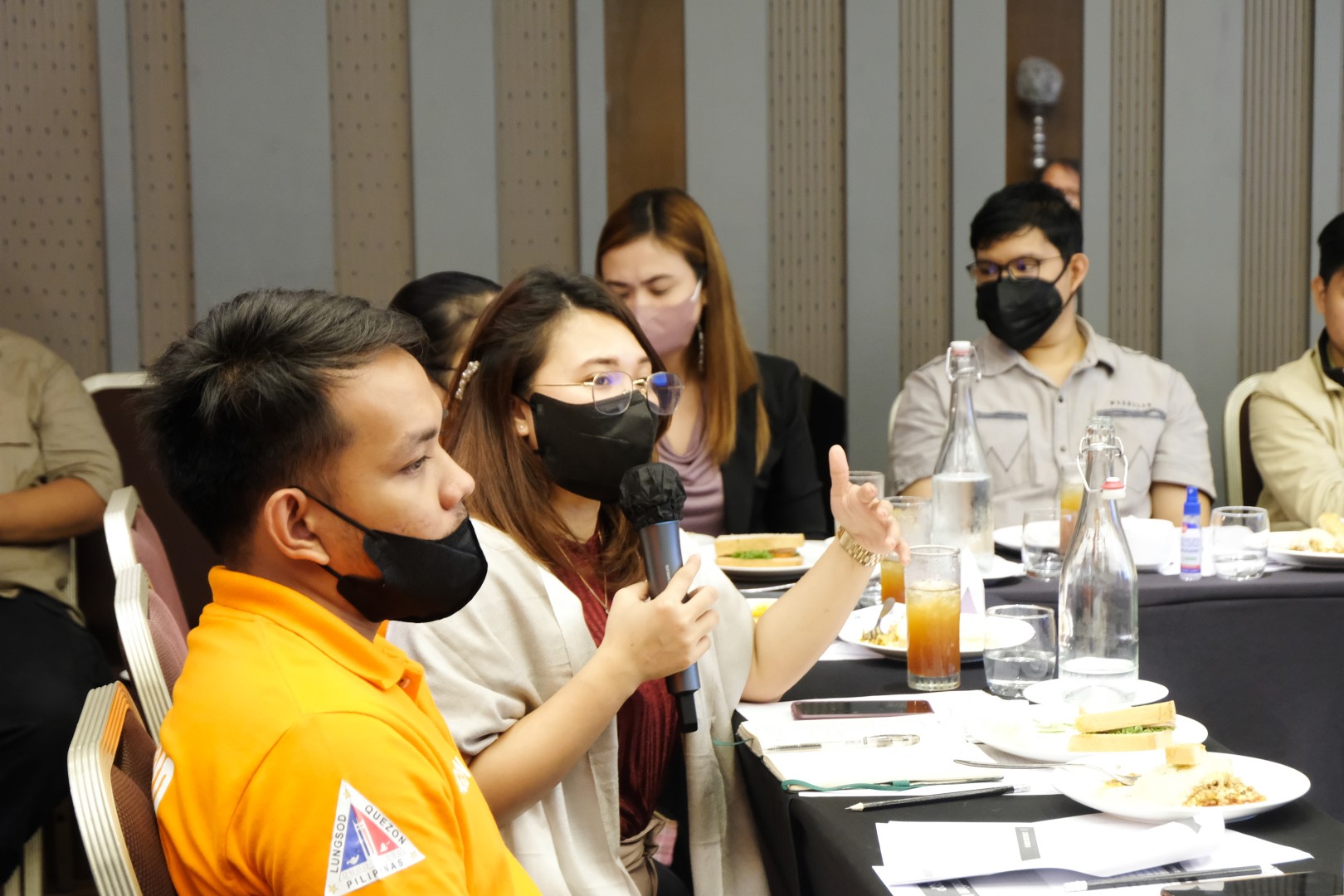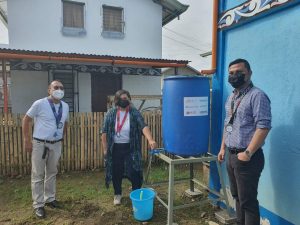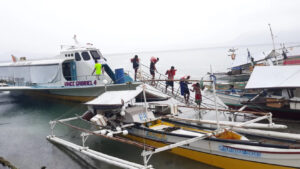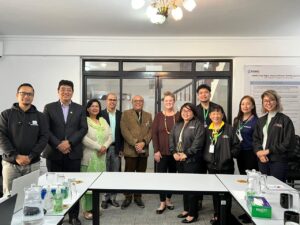The Philippine Disaster Resilience Foundation (PDRF)’s Project KoNeK or Komunidad at Negosyo Tungo sa Katatagan facilitated a roundtable discussion between government agencies and private concessionaires on ensuring that the water supply in Makati and Quezon City would not be interrupted during a disaster.
Representatives from PDRF, Makati and Quezon City local government units (LGUs), Manila Water, Maynilad, the Manila Waterworks and Sewerage System (MWSS), and the Office of Civil Defense – National Capital Region (OCD-NCR) participated in the discussion. The activity was supported by the United States Agency for International Development – Bureau for Humanitarian Assistance (USAID-BHA).
PDRF, in partnership with OCD, has been conducting a Public Service Continuity Planning (PSCP) program for LGUs and government agencies around the country to better prepare for crisis through crafting PSCPs. Both Makati and Quezon City are graduates of this program and have made significant strides towards testing and implementing their PSCPs.
During the development of the PSCPs, however, it was determined that critical lifelines such as water, electricity, and telecommunications were not considered resources needed for LGUs to perform their Mission Essential Functions (MEF). Utility companies were assumed to secure the delivery of these services during a disruption.
To address this problem, PDRF conducted a Vulnerability Assessment for Makati and Quezon City, specifically to determine the potential impact of water disruption in the execution of their duties, as well as to identify gaps and challenges experienced by the city when it comes to water continuity.
“Water is an essential commodity and it is critical to ensure its continued delivery during any type of disaster,” said PDRF president Butch Meily during the opening, “We hope this session will make for a stronger partnership between the public and private sector that can be replicated with the other lifeline service providers such as power and telecoms.”
Mr. Meily also mentioned how this program came at an opportune moment, just in in time for the onset of the rainy season since for the next six months, the country will have to be on alert for flooding or other natural hazards.
An independent consultant presented the highlights of the Vulnerability Assessment (VA) including the heavy dependency of LGUs on water concessionaires to ensure water resources are supplied in a worst-case scenario, the inadequacy of current alternative water sources such as water tanks, cisterns, trucks, and the severe impact a water interruption will have on hospitals, health centers, markets, evacuation centers, clinics, and other entities providing protective services.
The group addressed the strategic guides identified within the VA, discussed areas of collaboration between LGUs and the water concessionaires, and determined policy recommendations to improve the continuity of water supply in cities. Makati and Quezon City expressed enthusiasm for establishing and implementing more programs and working more closely with the water concessionaires. Manila Water, Maynilad, and MWSS recognized the interconnectivity between them and their government counterparts and the need to build a culture of preparedness to be able to provide their services without interruption.
PDRF executive director Veronica Gabaldon emphasized the importance of building bridges between the public and private sectors to build the nation’s resilience, highlighting Project KoNeK’s support the Department of Energy in developing the National Energy Contingency Plan, focusing on the power, fuel, and energy sector.
Project KoNeK is an initiative of PDRF and USAID-BHA that aims to build the disaster risk reduction and management (DRRM) capabilities of local communities. Other notable Project KoNeK activities include capacity building of barangays through workshops on evacuation camp management, DRRM, contingency planning, and creating hazard maps.



